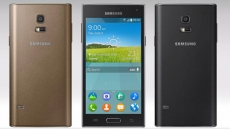If you plan to buy a wearable device fitted with health apps to improve your well-being, do not go by its flashy advertisements but check if it matches your requirements.
Given the large and quickly growing market for these devices, researchers at the University of Texas analysed 13 of these activity monitors - such as those made by Fitbit, Jawbone or Nike - to compare how the devices and their apps work to motivate the wearer.
They found that while many of these devices' apps were in line with recommendations from the health community, several apps were missing aspects, which are important for reaching fitness goals.
"Despite their rising popularity, little is known about how these monitors differ from one another, what options they provide in their applications and how these options may impact their effectiveness," explained Elizabeth Lyons, an assistant professor at the University of Texas' medical branch at Galveston.
"The device selection is dependent on the user's personal needs and preferences," he added.
Some of the devices measure and give feedback on several health/fitness dimensions including calories burnt, type of exercise activity undertaken, sleep quality and measurements of heart rate, skin sweat and body temperature.
Many, including Jawbone, Fitbit and Nike, have goal-setting and progress feedback, an array of easy-to-read charts and progress trackers based on the users' individual goals.
The researchers found that most of the interactive tools in these devices' apps for goal setting, self monitoring and feedback were in line with what healthcare professionals recommend for their patients.
"However, several tactics associated with successfully increasing physical activity were uncommon in or absent from the monitor systems, including action planning, instruction on how to do the behavior, commitment and problem solving," Lyons wrote.
In the end, the apps with the most features may not be as useful as those with fewer but more effective tools, the researchers concluded.
This study was published in the Journal of Medical Internet Research.





